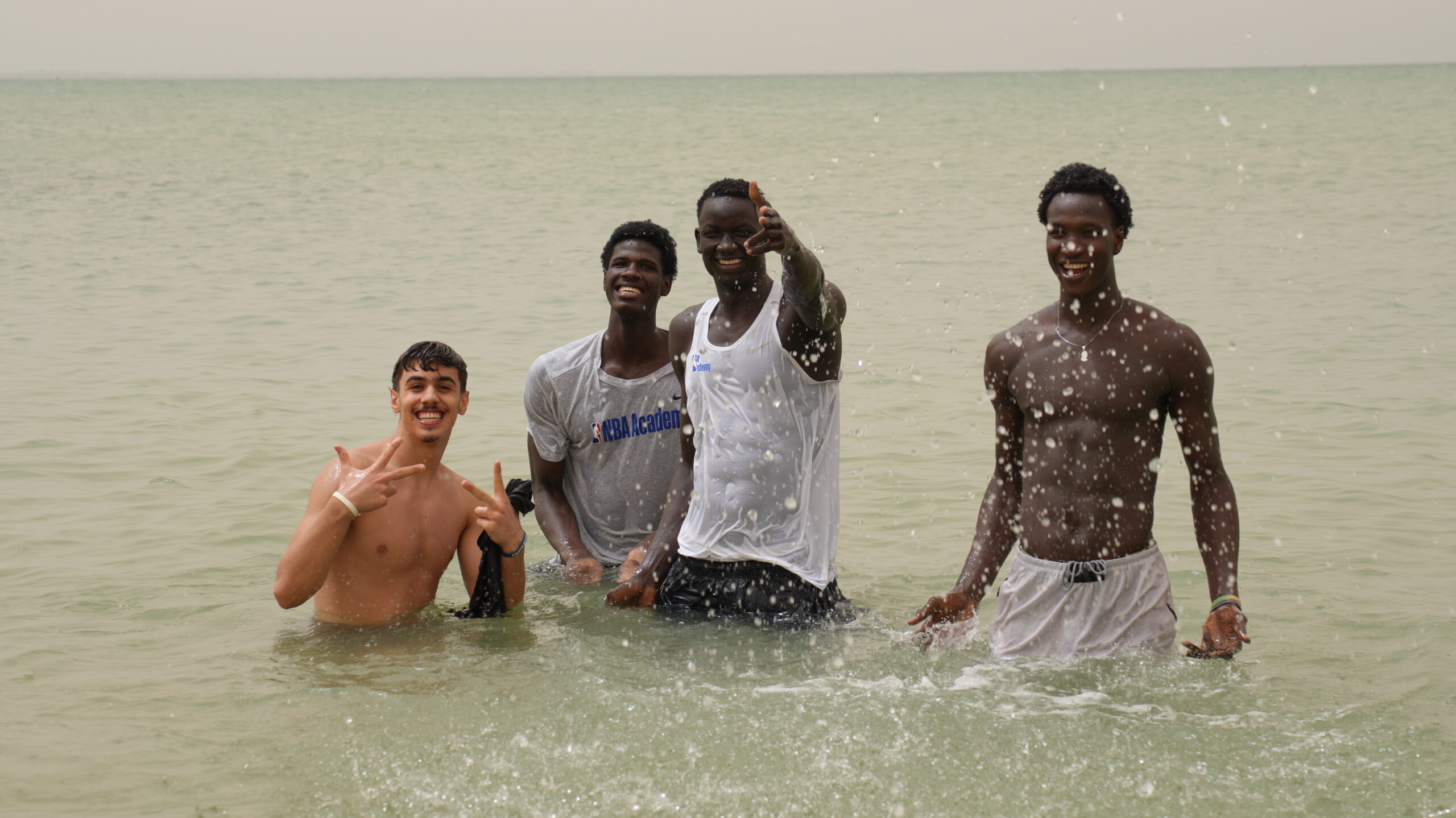SALY, Senegal — It’s tough being the new kid. But 17-year-old Zie Cheick Hassan Conde was just that when he arrived at NBA Academy Africa in September 2023. The 6-foot-8 wing was the only player from the Ivory Coast — he did not know anyone; he did not speak English; he worried about feeling alone.
Conde’s story is common at the Academy, where high school-aged basketball talent is brought from all over the continent to develop, learn and bond. Players come from different upbringings, united only by their passion for the game of basketball, or so they think.
“I was alone. I was in my room. I didn’t want to talk to everybody here,” Conde said. “We play basketball together every day, so they push you to be social.”
Team workouts and meals bring players together, but the shared moments during free time are just as important. The group visits the beach, enjoys shopping trips and long, emotionally fueled sessions of EA Sports FC.
This level of familiarity cannot be reached without first establishing a connection. As recruits at a basketball training program, the similarities are waiting to be discovered. But asking questions and learning about each other’s lives is difficult with a language barrier.
“It was very hard to communicate with my teammates, to make friends,” said 18-year-old Angolan wing Manuel Camboma. “I started learning English, and it became easier to talk to them.”
Players learn either English or French at the Academy, depending on what they already speak, according to Technical Director Roland Houston. A player like Camboma, who comes from a Portuguese-speaking country, studies both languages.
A few players watch as Camboma stands up after speaking with Capital News Service on June 7. Camboma playfully shoves Conde away from his chair, and the other players assist in keeping Conde away from the camera. During practice later that day, Nigerian forward David Ugonna Ike heaves a ball at the rim to disrupt the midrange shooting routine of Tunisian guard Ahmed Bedoui. Bedoui expresses frustration, but Ike assures him he can’t shoot anyway.
They argue; they compete; they laugh — like brothers.
For Senegalese players like wing Khadim Rassoul Mboup, the transition to NBA Africa is more immediately supported. More Academy players represent Senegal than any other country, increasing familiarity and comfort for someone who already does not have to cross a border.
“I was staying with the Senegalese people all the time, then they moved me in with a South Sudanese guy, and I started having conversations with him,” Mboup said. “All the guys here are cool, but especially Khaman [Maluach] because he was my roommate for three years.”
Khaman Maluach, a 7-foot-1 center from South Sudan, is one of the Academy’s most recent success stories, committed to play for Duke next season.

Bringing players together and creating circles of support are vital to putting them in a position to succeed once they leave NBA Africa, according to Houston. The coaches regularly hold game nights, movie nights, interactive community events, and other group activities to build a sense of camaraderie within the team.
Houston recounted one time when the staff implemented assigned seating at meals to prevent players from the same country from always sitting together. Eventually, after coaches stopped seeing the same kids always hanging with each other and speaking native languages, the rule was no longer needed.
”If you look at our group of guys, you’ll say ‘Wow, he’s from Cameroon; he’s from Senegal; he’s from Nigeria,’” Houston said, pointing around the gym. “You could just look right there! You got Ivory Coast, Congo and Nigeria. That’s beautiful. That’s the brotherhood.”
Where Mboup was once the incoming freshman, eager to find comfort around the older Senegalese players, he now recognizes his role as an Academy veteran, tasked with making sure new classes of players feel acclimated as soon as possible.
Mboup said he studies greetings and basic communications from the languages of incoming players to be able to talk with them and make them feel at home.
“I’m just trying to transfer what the veterans gave me before they left,” Mboup said. “It’s the energy, encouraging the young guys and giving them the courage to play.”


You must be logged in to post a comment.